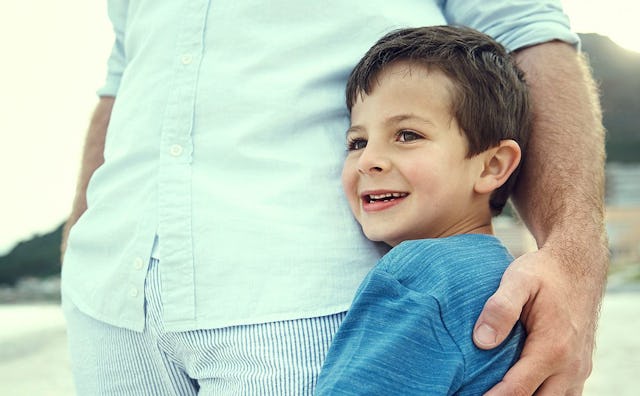How Can You Teach Kids About Danger Without Haunting Them?

I’m in a Facebook group of moms who live in my town, and amidst all the incredibly useful local information they offer up regularly, they also post blogs or articles that they think are helpful, or even just thought-provoking. That’s where I first saw this post from the Denver Metro Moms Blog about preventing child abuse. And no, I’m not against preventing child abuse. What I am against, however, is posting a list of “body safety rules” in your kitchen.
The article is called “Why We Don’t Keep Secrets In Our House” and the writer, Melissa Meuzelaar, is clearly a loving and concerned parent, with nothing but the best of intentions for her kids. She writes that when a friend tried to offer her son a cookie by telling him it was a secret, and that he shouldn’t tell his mom, her son told the friend, “We don’t keep secrets in our house, we do surprises.” The difference, she notes, is that a surprise is something you keep quiet about temporarily, while a secret is one you keep forever.
There’s some sound logic there. We know that child abusers often tell kids that the abuse is “their secret,” that they can’t tell anyone, and that something bad will happen if they do. I don’t tend to get quite so hung up on words, but this seems like a pretty simple way for little kids to understand the difference and to spot a warning sign when one comes along. Teaching them to find an adult to confide in is a smart piece of advice. So far, so good, until we get to this list that her family has posted in the kitchen.
The rules themselves aren’t the issue. They’re good rules, with words and phrases written for optimal clarity. But do you really want a daily, visual reminder to your kids of the bad things that other people might want to do to them, and how fascinating their private parts might be to another person? How about other people’s kids who come to visit, or other people in general? This is what Meuzelaar says about that:
“And when friends or child care providers see the Body Safety Rules hanging in our kitchen, it’s obvious to them that sexual abuse prevention is on our radar. A conversation is usually quick to follow, sometimes it’s comfortable and other times it’s just plain awkward. But I simply have to ask myself, am I willing to have a moment of awkwardness with someone in order to have my child’s back and keep him safe? The answer is always, without a doubt, Yes.”
It’s not about awkwardness. Awkwardness happens when people hear my kids talk about their grandpas who are married to each other, and it lasts a few seconds, and passes. This is in a whole other realm.
Frankly, I don’t want my kids thinking about sexual abuse every single day. We do our best to equip them with the tools they need to get out of a situation safely without requiring them to be on the lookout for it all the time. And if I were their friends’ parents, I wouldn’t want my children being reminded of it every time they go out for a playdate either. I think we can talk to our kids about danger and how to handle it without haunting them, can’t we?
This article was originally published on